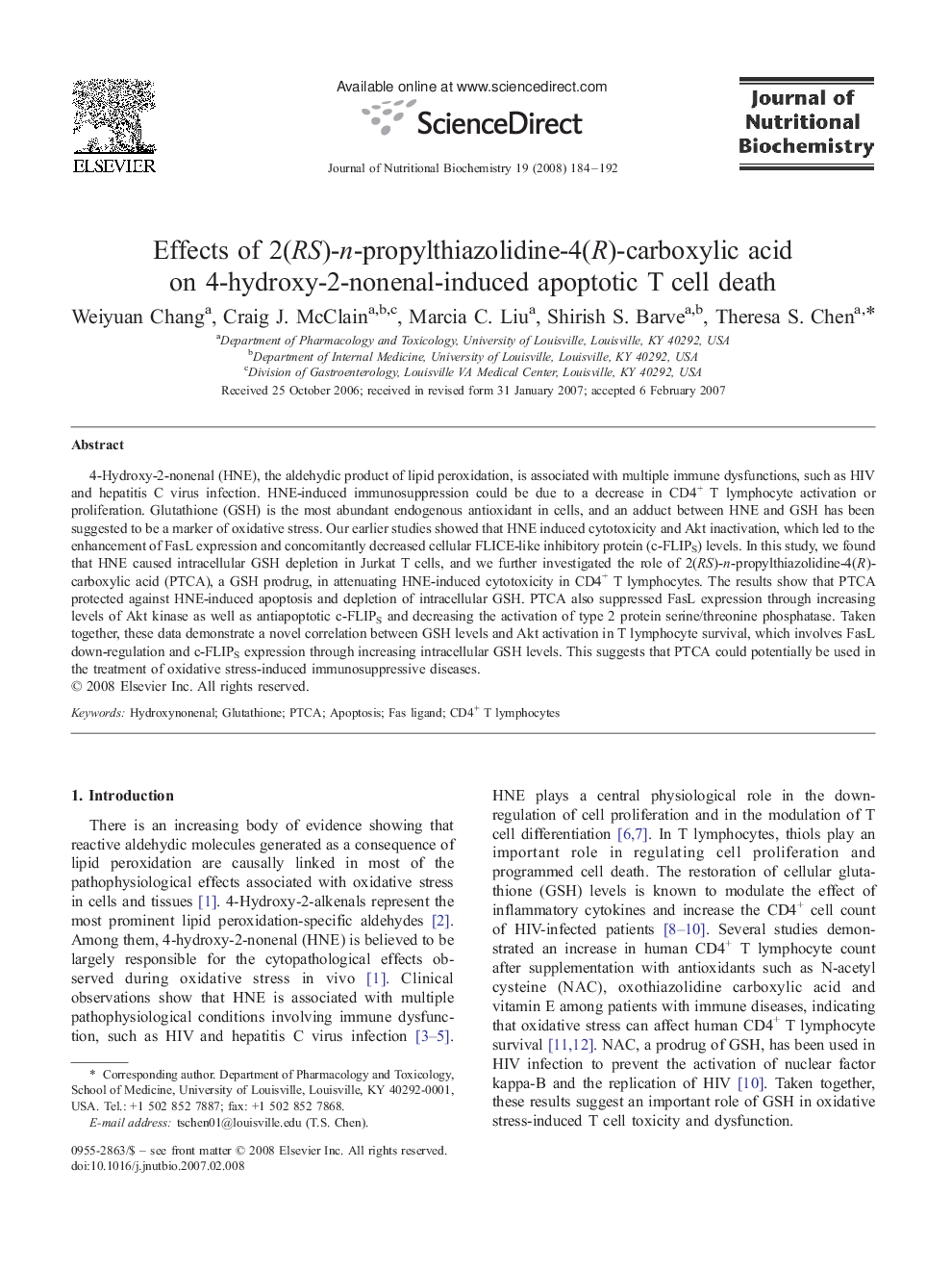| Article ID | Journal | Published Year | Pages | File Type |
|---|---|---|---|---|
| 1990606 | The Journal of Nutritional Biochemistry | 2008 | 9 Pages |
4-Hydroxy-2-nonenal (HNE), the aldehydic product of lipid peroxidation, is associated with multiple immune dysfunctions, such as HIV and hepatitis C virus infection. HNE-induced immunosuppression could be due to a decrease in CD4+ T lymphocyte activation or proliferation. Glutathione (GSH) is the most abundant endogenous antioxidant in cells, and an adduct between HNE and GSH has been suggested to be a marker of oxidative stress. Our earlier studies showed that HNE induced cytotoxicity and Akt inactivation, which led to the enhancement of FasL expression and concomitantly decreased cellular FLICE-like inhibitory protein (c-FLIPS) levels. In this study, we found that HNE caused intracellular GSH depletion in Jurkat T cells, and we further investigated the role of 2(RS)-n-propylthiazolidine-4(R)-carboxylic acid (PTCA), a GSH prodrug, in attenuating HNE-induced cytotoxicity in CD4+ T lymphocytes. The results show that PTCA protected against HNE-induced apoptosis and depletion of intracellular GSH. PTCA also suppressed FasL expression through increasing levels of Akt kinase as well as antiapoptotic c-FLIPS and decreasing the activation of type 2 protein serine/threonine phosphatase. Taken together, these data demonstrate a novel correlation between GSH levels and Akt activation in T lymphocyte survival, which involves FasL down-regulation and c-FLIPS expression through increasing intracellular GSH levels. This suggests that PTCA could potentially be used in the treatment of oxidative stress-induced immunosuppressive diseases.
